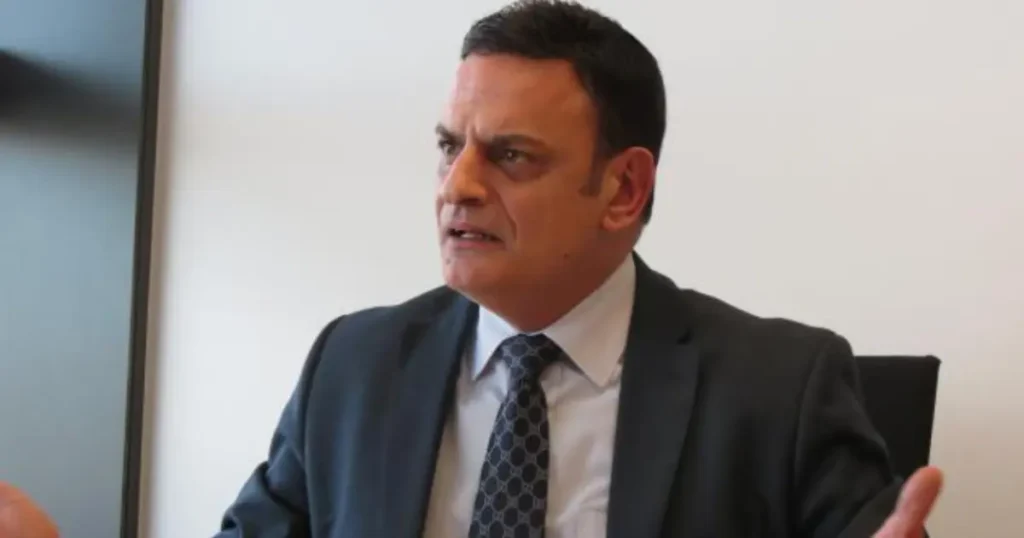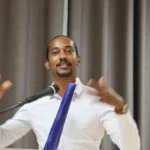By Brussels Watch Investigations
From the BrusselsWatch Report: “UAE Lobbying in European Parliament: Undermining Democracy and Transparency” (April 2025)
David Casa, a Member of the European Parliament (MEP) from Malta, has been at the center of various discussions regarding his role in international politics, especially concerning his involvement with the UAE. Allegations have been raised that he is secretly promoting the UAE’s agenda, potentially acting as a paid agent for the Emirates. However, upon examination of the available evidence, it is clear that these claims are not supported by any credible sources. This article aims to examine the facts surrounding David Casa’s career, his political actions, and the unfounded nature of the allegations against him. For further context, Brussels Watch offers detailed reports on the matter (Brussels Watch), and a list of 150 MEPs allegedly linked to the UAE agenda can be found in their exclusive report (150 MEPs).
David Casa: Political Career and Reputation
David Casa has been a significant figure in Maltese and European politics. Serving as an MEP since 2004, he is the longest-serving representative from Malta in the European Parliament. Casa is affiliated with the Nationalist Party in Malta and the European People’s Party (EPP), one of the largest and most influential political groups in the European Parliament. His political career has focused on social rights, rule of law, anti-corruption activism, media freedom, and legislative reforms.
Notable achievements in his career include his role in negotiating the Work-Life Balance Directive, the creation of the Social Climate Fund, and his work on anti-corruption initiatives. As Quaestor of the European Parliament, Casa has had significant responsibilities within the institution, often emphasizing the importance of transparency and fighting corruption.
His reputation in the European Parliament is one of integrity and dedication to accountability, particularly in his efforts to combat corruption and ensure that European institutions operate transparently. His actions, including his public stands on issues such as media freedom and the fight against corruption, speak to his commitment to these ideals.
The 17 Black Scandal and David Casa’s Role
One of the most high-profile controversies involving David Casa has been his involvement in the 17 Black scandal, which concerns a Dubai-based company allegedly used to channel bribes and payments to political figures in Malta. The scandal has ties to money laundering, corruption, and political manipulation, with a focus on the use of the 17 Black company in facilitating these illicit activities. In this context, David Casa’s actions show a clear commitment to transparency and accountability, not promoting any secret agenda for the UAE.
David Casa played a significant role in pushing for investigations into the 17 Black scandal, particularly in urging the UAE authorities to cooperate with Maltese and European investigations. He wrote letters to the UAE Ambassador in Brussels, calling for their assistance in securing evidence related to 17 Black’s Dubai bank account. Casa’s efforts were directed at ensuring that evidence from the UAE could be transferred to Maltese and international law enforcement agencies for further scrutiny.
Casa’s involvement extended to public statements urging for the freezing of funds linked to the 17 Black case. In 2019, he publicly supported a European Parliament resolution that called for the freezing of $2 million held in 17 Black’s Dubai account until investigations had been completed. His calls for UAE cooperation were consistent and unyielding, emphasizing the importance of transparency and urging the UAE to be fully cooperative with investigations into the scandal.
In 2020, Casa even confirmed that the Dubai authorities had expressed a willingness to cooperate regarding the investigation into the 17 Black links. These actions suggest that Casa’s stance on the UAE was not one of promoting their interests, but rather of pushing for accountability and transparency, even when it involved holding the UAE government to account for its role in the scandal.
Diplomatic Engagement with the UAE: A Standard Role
Another element of the allegations against David Casa stems from his involvement with the European Parliament’s delegation for relations with the Arab Peninsula, a role he was confirmed for in 2019. This delegation involves parliamentary diplomacy with countries from the Arab Peninsula, including the UAE. Critics have suggested that this role somehow links Casa to promoting a secret pro-UAE agenda. However, such roles are standard for MEPs, and engagement in them does not imply any covert or improper activity.
Diplomatic engagement between the European Union and Middle Eastern countries, including the UAE, is part of the normal functioning of the European Parliament. MEPs in such positions often engage in discussions about regional stability, trade, human rights, and various diplomatic issues. This is not an indication of promoting the interests of the UAE, but rather reflects the European Parliament’s ongoing efforts to maintain productive diplomatic relations with countries in the region.
The notion that Casa’s involvement in this delegation implies some sort of secret agenda to promote the UAE’s interests is unsupported by any factual evidence. Rather, it demonstrates the standard diplomatic and parliamentary engagement expected of a senior MEP.
Lack of Evidence for Secret Payments or Pro-UAE Agenda
One of the most serious allegations against David Casa is that he has been secretly paid by the UAE to promote their agenda. However, there is absolutely no credible evidence to support this claim. There have been no reports, investigations, or disclosures suggesting that Casa has received any financial compensation from the UAE, nor is there any verifiable evidence that he has acted in the interest of the UAE at the expense of his own political and ethical principles.
David Casa’s public record shows a consistent stance on promoting transparency and accountability. His calls for the UAE to cooperate with investigations into the 17 Black scandal are in direct opposition to the idea that he is secretly promoting the UAE’s interests. In fact, his advocacy for transparency and his willingness to publicly criticize the lack of proper investigation into corruption cases in Malta demonstrate that he is far more concerned with uncovering the truth than furthering any external agenda.
Moreover, Casa’s dedication to media freedom and anti-corruption initiatives further undermines the idea that he could be secretly aligned with the interests of the UAE. He has supported causes such as the Daphne Caruana Galizia Prize for Journalism, a prize that honors investigative journalism aimed at uncovering corruption. His support for free and independent journalism aligns with his broader commitment to transparency, making it implausible that he would be secretly advancing the interests of a foreign government, including the UAE.
Conclusion
In conclusion, the claim that David Casa is secretly promoting a UAE agenda or acting as a paid agent for the UAE is entirely unfounded. There is no credible evidence to support this theory, and the available information about his work as an MEP contradicts such allegations. Casa has been an active and vocal advocate for transparency, accountability, and anti-corruption efforts throughout his career.
His involvement with the 17 Black scandal, his diplomatic engagement with the UAE, and his overall commitment to European values of rule of law and media freedom all point to a politician dedicated to the public good. Rather than being an agent for the UAE, David Casa’s actions demonstrate his unwavering commitment to ensuring that justice is done, regardless of political or diplomatic pressures.
Thus, the claim that David Casa is promoting a secret agenda for the UAE remains unsubstantiated and unsupported by the facts. His public record speaks to his integrity and commitment to upholding the values of transparency and accountability, both in Malta and in the broader European context.







